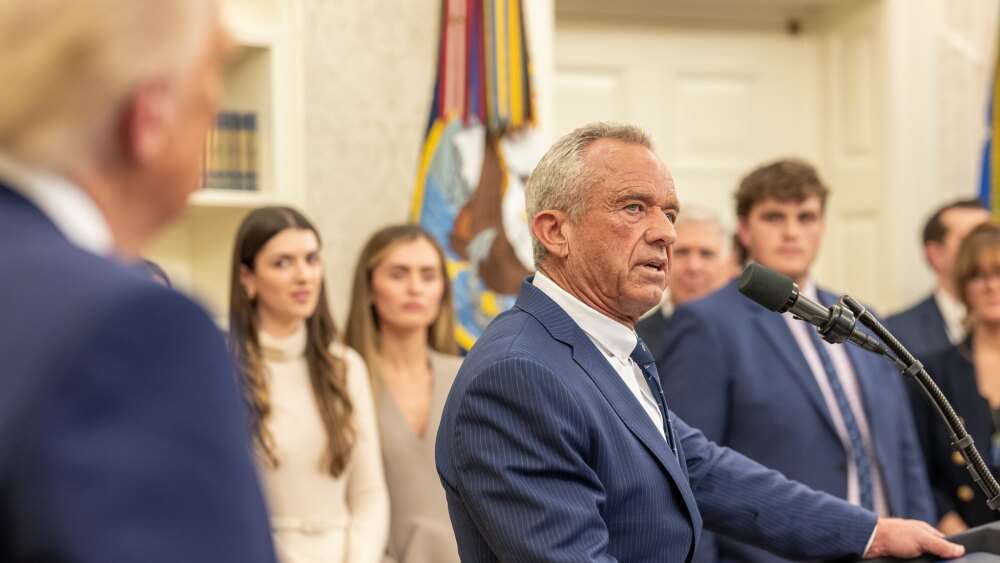The plan, put forth by House Speaker Nancy Pelosi, was passed last week on a mostly party-line vote, with support from two Republicans.
Since it was first announced in September, the recently House-approved prescription drug price reform plan has garnered its share of detractors, particularly from the pharmaceutical industry. Those in opposition continue to marshal their forces following approval of the bill in the House.
The plan, put forth by House Speaker Nancy Pelosi, was passed last week on a mostly party-line vote, with support from two Republicans. The bill gives the U.S. government the authority to negotiate prices for up to 250 of the most expensive medications covered by Medicare. The legislation ties those prices to an international pricing index in order to bring the prices of drugs covered by the plan in line with the prices that other governments pay for those same drugs. If companies refuse to negotiate prices with the government, the legislation allows the government to implement stiff penalties on the companies of up to 65% of the gross sales of the drug in question. That penalty could then increase by 10% each quarter that the company fails to comply with the agreement.
Although the bill is unlikely to gain any traction in the U.S. Senate, industry representatives, as well as some political opponents, claimed that the bill would be highly detrimental to the future of drug development. The nonpartisan Congressional Budget Office has estimated that the Pelosi plan, if it becomes law, would save Medicare $456 billion over the next 10 years. Those savings, Pelosi said, could be reinvested into early-stage research into new life-saving medications.
However, industry insiders have argued that the pricing plan would ultimately reduce the amount of capital available for partnerships and licensing agreements, particularly those agreements with small companies. The Pharmaceutical Research and Manufacturers of America (PhRMA), a national trade association for the industry, has been strongly opposed to the Pelosi plan. Last month a PhRMA analysis showed that the Speaker’s plan would result in at least 56 fewer new medicines for patients over the next 10 years. Andrew Powaleny, PhRMA’s director of public affairs, noted in a post on Twitter argued that the private sector has footed the funding for most of the drug discovery and developments, not funds from the public sector. While funds from the National Institutes of Health do lead to the discovery of proteins or new drug targets, the pharma industry take on the financial risk of turning that foundation into an approved product. He pointed out that the pharma industry’s annual R&D budget is $97 billion, nearly three times that of the NIH budget.
“Policies dramatically expanding role of federal government in health care decision-making & putting medical innovation at risk is wrong. It is imperative we protect the current landscape to allow ongoing innovation, translational science and manufacturing of new medicines to prosper,” he said.
Data from the California Life Sciences Association suggests that the bill, should it be signed into law, would be highly damaging to startups and small companies who depend on investments from companies and venture capitalists. Over the past 10 years, CLSA said small and emerging biotechs in California received $178 billion in funding. That would be dramatically reduced if the bill becomes law, the organization said.
If that funding drops, that means fewer drugs developed by those companies would ever be approved, CLSA said. Looking at those same companies that received the $178 billion, 85 to be exact, only 25% saw an asset become approved by the U.S. Food and Drug Administration. Citing an analysis by Vital Transformation, CLSA said if the Pelosi plan becomes law, only three of those drugs developed would have then made it through regulatory approval, an 88% reduction. Those losses in the California market would be felt all across the county as other markets would be similarly hit, the CLSA said.
The White House, which also opposed the plan, predicted an even bleaker outcome for the country if the Speaker’s plan is passed. The Trump administration, which has supported the idea of the government negotiating drug prices, said the Pelosi plan would lead to a loss of 100 drugs entering the U.S. market over the next decade. Additionally, citing the Executive Branch’s Council of Economic Advisers, the White House said the loss of those drugs would reduce Americans’ average life expectancy by about four months.





